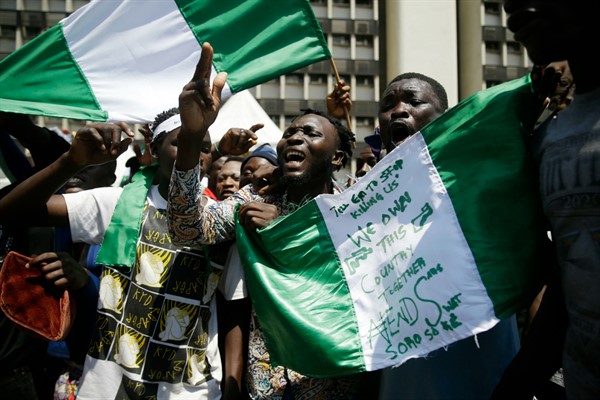On Oct. 20, Nigerian security forces opened fire on two groups of unarmed demonstrators in the sprawling metropolis of Lagos, reportedly killing at least a dozen people. The victims had been part of a weeks-long civic uprising to demand more accountability from law enforcement and an end to rampant police brutality in Nigeria. In the wake of last week’s shootings, the direction and future of the protest movement remain unclear. Several states, including Lagos, have implemented curfews due to increased violence and pockets of unrest, much of it targeting the peaceful protesters. In the aftermath of last week’s shootings, several governments and international organizations, including the United States, the United Kingdom, the European Union, the United Nations and the African Union, have issued statements decrying the violence. The bloodshed also led The Feminist Coalition, the group of young Nigerian feminists that emerged as one of the spearheads of the protests, to announce it will no longer accept donations toward the movement.
What comes next for the protests, which initially sought the abolition of the country’s notorious Special Anti-Robbery Squad but subsequently called for systemic reforms to address police brutality, is very much an open question. But the developments of the past month already have significant implications for Nigerian politics.
The Special Anti-Robbery Squad was created as a specialized unit of the Nigerian Police Force in 1992, during a period of intense anxiety in Nigeria about armed robberies and other serious crimes. Its mandate was subsequently broadened to include the investigation and prosecution of armed robbery, murder, kidnappings and other violent crimes—and with those enhanced powers came more impunity and heavy-handedness. Over the years, SARS officers have been implicated in widespread human rights abuses, extrajudicial killings, torture, arbitrary arrests, rape, extortion and unlawful detention. In June, Amnesty International released a report documenting 82 cases of extrajudicial killings by SARS officers between January 2017 and May 2020.

